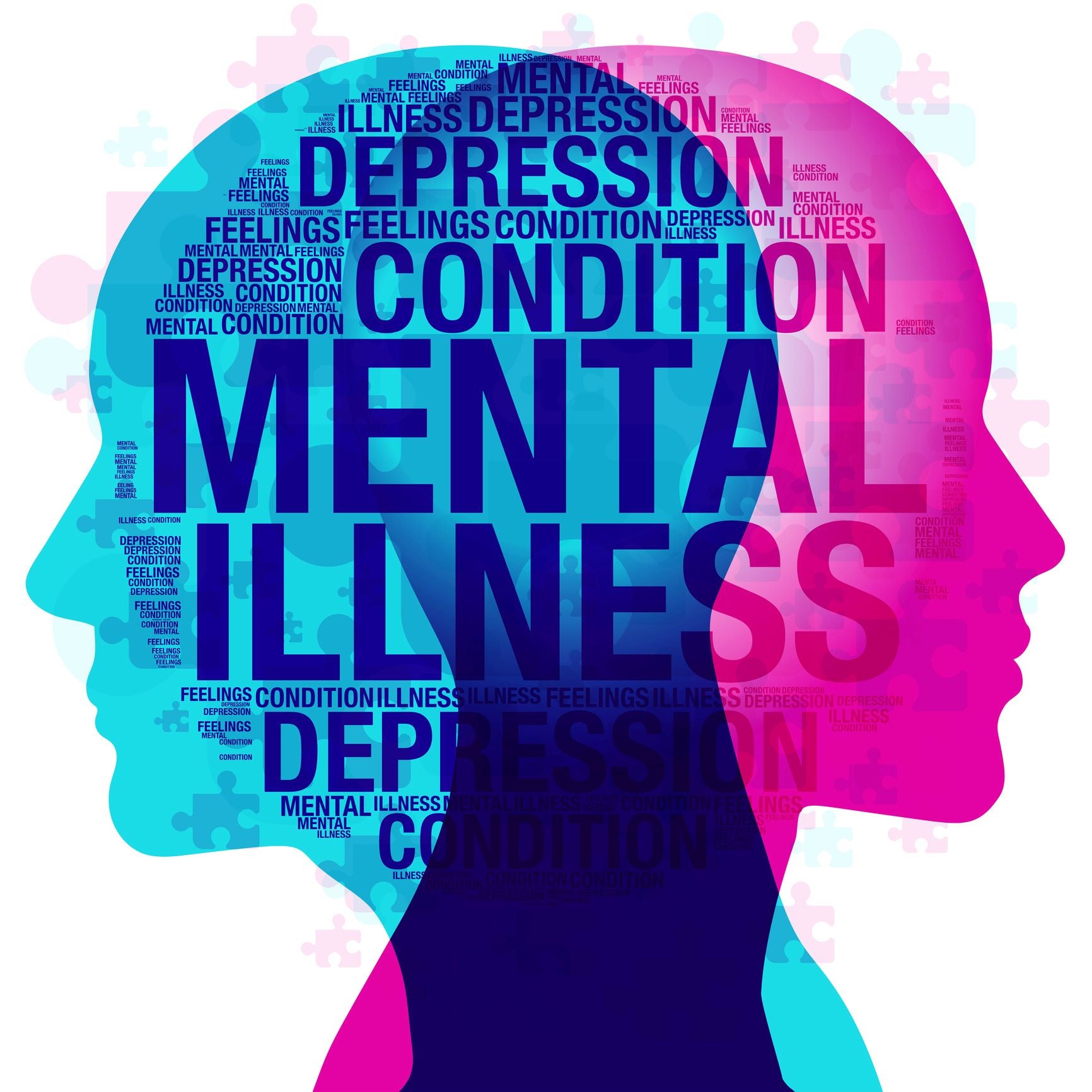Why Inpatient Mental Health Services Are Crucial for Recovery
Comprehensive Inpatient Mental Health Solutions for Effective Therapy
Inpatient psychological health services represent an important element of the health care system, offering a intensive and organized environment for individuals experiencing extreme emotional distress. These solutions use a multidisciplinary method, incorporating various evidence-based therapies to attend to the complex requirements of patients. The performance of such thorough care extends beyond instant stablizing; it also includes the change to outpatient assistance, a critical phase typically ignored - inpatient mental health services. Discovering the subtleties of this continuum discloses substantial effects for both specific recuperation and more comprehensive psychological wellness end results. What variables absolutely affect this change, and just how can we boost its performance?
Understanding Inpatient Mental Wellness Solutions
Inpatient psychological health solutions give important support for individuals experiencing extreme mental distress that can not be managed properly in an outpatient setup. These services are designed to supply an intensive degree of treatment in a structured setting, often within a medical facility or specialized facility. Individuals admitted to inpatient programs commonly show acute signs and symptoms, such as suicidal ideation, extreme anxiety, or psychosis, necessitating continuous monitoring and treatment.
The admission process generally involves a thorough analysis by mental wellness experts, that assess the person's mindset, background, and immediate needs. As soon as confessed, clients take part in a variety of restorative methods tailored to their certain needs, consisting of medication monitoring, individual therapy, and team sessions. This holistic method aims to maintain the patient's condition, advertise safety and security, and foster coping skills.
Inpatient mental health and wellness solutions not only address instant wellness concerns however likewise offer as a bridge to recurring care. By offering a controlled environment, these services assist in the growth of treatment plans that can be continued in outpatient settings, hence ensuring a continuum of treatment and enhancing long-lasting results for individuals with complicated psychological health requirements.
Secret Parts of Effective Therapy
Reliable therapy in inpatient psychological wellness services makes up a number of crucial components that foster recovery and stabilization. Firstly, a thorough assessment is necessary to determine the individual's particular requirements and difficulties. This analysis educates the advancement of a customized treatment strategy, which works as a roadmap for treatment.
One more crucial component is the multidisciplinary group strategy. Cooperation amongst psychiatrists, psychologists, registered nurses, and social employees makes sure that various perspectives add to the person's treatment, improving the effectiveness of therapy. Evidence-based restorative techniques, such as cognitive-behavioral treatment (CBT) and dialectical behavior modification (DBT), are also essential, providing organized techniques that resolve maladaptive idea patterns and behavioral concerns.

Finally, a concentrate on aftercare preparation is vital to make sure a seamless shift to outpatient services, lessening the danger of regression and promoting long-lasting health. These cumulative parts develop an efficient therapy framework within inpatient psychological health and wellness services.
Advantages of Comprehensive Care

Thorough treatment in inpatient mental wellness solutions provides many advantages that considerably improve person results. Among the primary advantages is the alternative strategy to therapy, dealing with not only the emotional signs and symptoms but likewise the physical, social, and psychological demands of patients. This extensive analysis enables customized interventions that promote overall wellness.
An additional benefit is the integration of multidisciplinary groups, which fosters cooperation amongst medical care professionals. This collaborative environment makes certain that people get coordinated treatment, lowering the threat of fragmented therapy and boosting communication amongst caregivers. Detailed care helps with continuity of solutions, allowing for seamless transitions from inpatient to outpatient setups, which is critical for long-lasting healing.

Finally, the structured atmosphere of detailed inpatient care offers a risk-free area for individuals to participate in restorative activities, aiding them establish coping techniques and resilience. Jointly, these advantages add to a lot more efficient official statement treatment and improved lifestyle for people experiencing psychological health and wellness dilemmas.
Evidence-Based Therapeutic Approaches
In the world of psychological health and wellness treatment, evidence-based healing techniques play a critical role in ensuring that patients obtain efficient and scientifically sustained interventions. These strategies integrate the most effective readily available study with scientific know-how and individual values, cultivating a customized therapy experience that deals with specific requirements.
Cognitive Behavior Modification (CBT) is one of one of the most widely acknowledged evidence-based approaches, focusing on determining and transforming negative idea patterns and actions. This structured technique has shown efficacy in treating problems such as ptsd, stress and anxiety, and clinical depression. In A Similar Way, Dialectical Behavior Modification (DBT) is especially efficient for people with borderline individuality disorder, emphasizing the development of emotional guideline and social performance abilities.
In addition, medicine monitoring is typically an next page integral part of evidence-based therapy, as psychotropic drugs can relieve symptoms and enhance general functioning. Collective care models, which involve multidisciplinary teams, better boost the efficiency of inpatient solutions by ensuring thorough analyses and continual tracking.
Eventually, the integration of evidence-based therapeutic strategies not just promotes positive professional outcomes but additionally equips clients, fostering a feeling of company and resilience in their psychological wellness journeys.
Transitioning to Outpatient Assistance
The shift from inpatient mental health solutions to outpatient support marks a critical stage in an individual's recovery trip. This period calls for cautious planning and coordination to guarantee connection of care and to mitigate the dangers of relapse or situation. Effective discharge preparation ought to start early in the inpatient remain, entailing a multidisciplinary team that consists of psychoanalysts, psychologists, registered nurses, and social workers.
Crucial element of an effective transition consist of the growth of a detailed aftercare strategy tailored to the person's particular demands. This plan must outline follow-up visits, drug administration, and healing interventions, in addition to recognize community resources and assistance groups that can help with recurring recovery.
Additionally, patient and family education and learning is vital during this stage. Recognizing the signs of prospective troubles and the importance of adhering to therapy can encourage patients and more their support systems.
Routine follow-up and review of the outpatient plan are vital to attend to advancing challenges. By cultivating a collaborative partnership between inpatient and outpatient companies, the chance of continual healing boosts, eventually enhancing the client's quality of life and decreasing the danger of readmission.

Final Thought
In recap, thorough inpatient psychological wellness services use a crucial structure for addressing severe psychological distress through a multidisciplinary approach. Ultimately, such extensive care is important for long-term psychological health and health.
The admission process typically includes an extensive evaluation by mental health specialists, that review the person's mental state, history, and immediate demands.Reliable therapy in inpatient psychological wellness services comprises numerous vital elements that promote recovery and stablizing.Thorough treatment in inpatient mental health solutions provides various benefits that significantly boost individual results.The transition from inpatient psychological health and wellness services to outpatient assistance marks a crucial stage in an individual's recovery trip.In summary, comprehensive inpatient psychological health and wellness services use a vital framework for resolving serious psychological distress with a multidisciplinary approach.